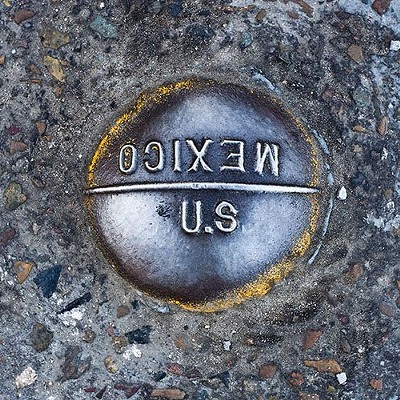The world did not end on Dec. 21, as all of the fear-fueled hype predicted. Damn.
Although doomsday has seemingly come and gone with nary a hiccup in the overall scheme of things, don't worry—there is still plenty to fear. Society makes sure of it.
Ours has become a paranoid lot, fearing everything from the sun that shines upon us to the very air we breathe. Fueled by misinformed Internet postings, random rumors, hyped-up headlines and our neighbor's offhand remark, we become consumed by terror. What a crummy way to live.
Paranoid parents raise their kids in captivity. Women get both their breasts removed as a preventive cancer treatment "just in case."
On the local level, we see fears fueled all over the place. Strict anti-smoking laws fuel the fear that a single puff of secondhand smoke will instantly send us, our children, our pets and our houseplants to an early grave.
Ridiculously low speed limits reinforce the fear of driving at speeds that actually get you somewhere quicker than a three-toed sloth. Automated supermarket checkouts mean we'll all lose our jobs to robots! Erecting a border fence will make all migratory wildlife extinct!
While common sense makes total sense when it comes to keeping ourselves, our kids, our pets and our houseplants safe, there is a big, fat line between living cautiously and living in a paranoid frenzy. The latter is not living at all, but merely existing in a state of all-consuming horror that can result in high stress levels and, eventually, an all-consuming heart attack.
With this kind of paranoia going on, the end of the world could be a welcome relief.
Part of the problem is laziness. Few actually bother to check the facts behind the fears, finding it much easier to believe the swirling hype. The hype is further reinforced if it comes from supposedly trusted sources, and gains even more credibility if other people already believe it.
A major case in point comes from the sporadic yet ongoing worldwide movement to ban the horrific-sounding "dihydrogen monoxide." Playing on people's fears that all chemicals are bad, bad, bad, and banning them is good, good, good, the issue of restricting the use of dihydrogen monoxide has popped up all over. It's been on numerous petitions, was on an agenda of concerns of a New Zealand member of Parliament, and once nearly came up for a vote at a City Council meeting in Aliso Viejo in Orange County, Calif.
The colorless, odorless, tasteless dihydrogen monoxide has, in fact, been linked to thousands of deaths over the years. It can also certainly cause death if those who have become dependent on it are forced to withdraw from it.
Dihydrogen monoxide is water.
People could have poked beneath the doomsday hype to find out what researchers such as New Mexico State University anthropologist Weldon Lamb already knew.
"There's no Maya prophecy that suggests that at any period, the world is going to end," Lamb says in the El Paso Times. He also notes the hype-monsters often didn't even bother to use the correct calendar while dispensing their hype.
"Just about any book or show that talks about 2012 talks about the Maya calendar, and then they show the so-called Aztec calendar," Lamb tells the paper. "So basically, it's sensationalism and ignorance, an opportunity to make money. It's just one of those amusing things that the 'fast-to-make-a-buck people' do."
While we're at it, we may as well also point out a study conducted by the University of Michigan's Comprehensive Cancer Center regarding double breast removals as preventive treatment.
"The study revealed 70 percent of breast-cancer patients that receive a double mastectomy don't have a clinical reason for having the procedure done," according to AnnArbor.com. "Many women research treatment options online before talking with a surgeon."
The publication quotes the medical school's Dr. Michael Sabel: "All it takes is one person to say, 'I wish I had just had both breasts removed.'"
And overprotecting your kids? Various studies on that one show it decreases children's "emotional resilience," boosts their fears of failure and can even cause complete mental breakdowns. Yes, mental breakdowns—in children.
If you want something to fear, that's a good one.
Or you can go another route, and stop fearing—so you can start living. Life is way too short to be wrapped up in worry, even if it is destined to last a bit longer than the doomsday predictions said.






